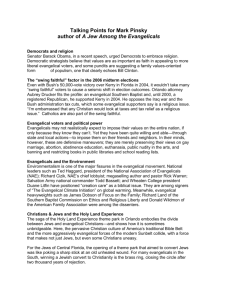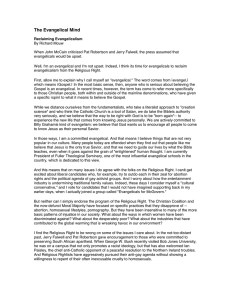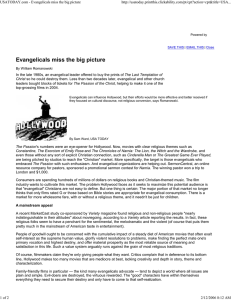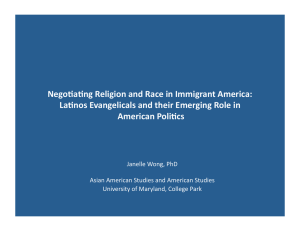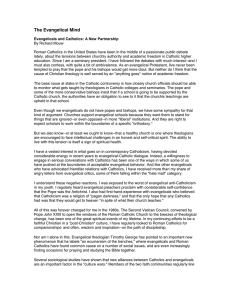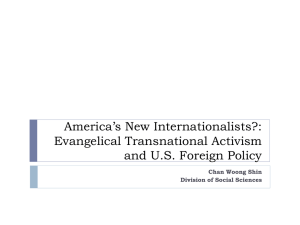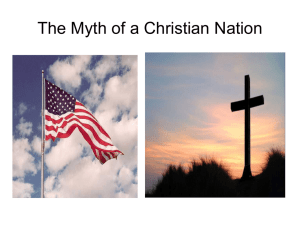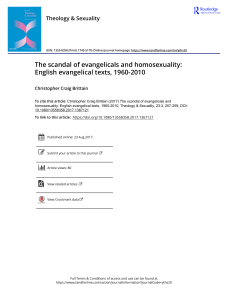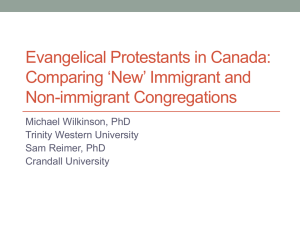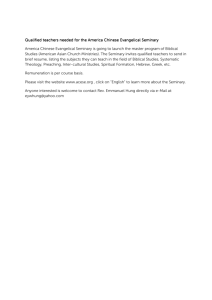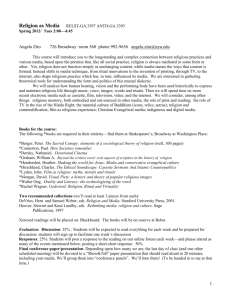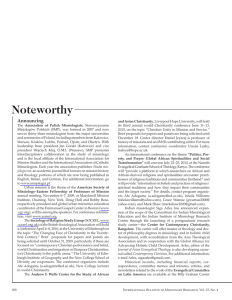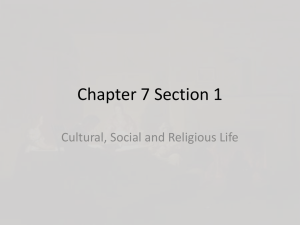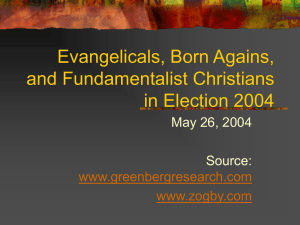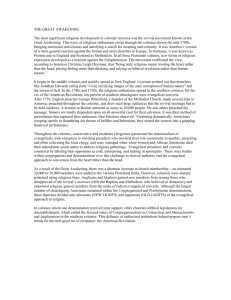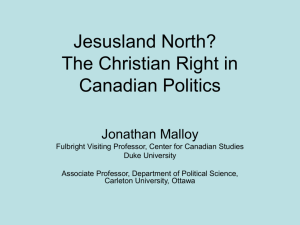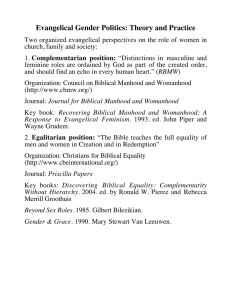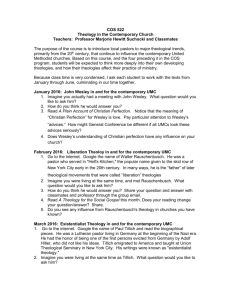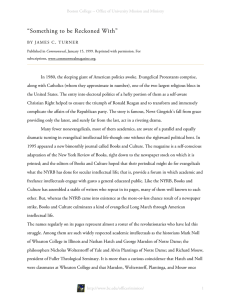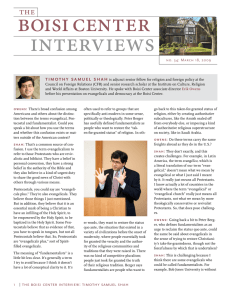Focusing on the Family: The American Tract Society 1825
advertisement
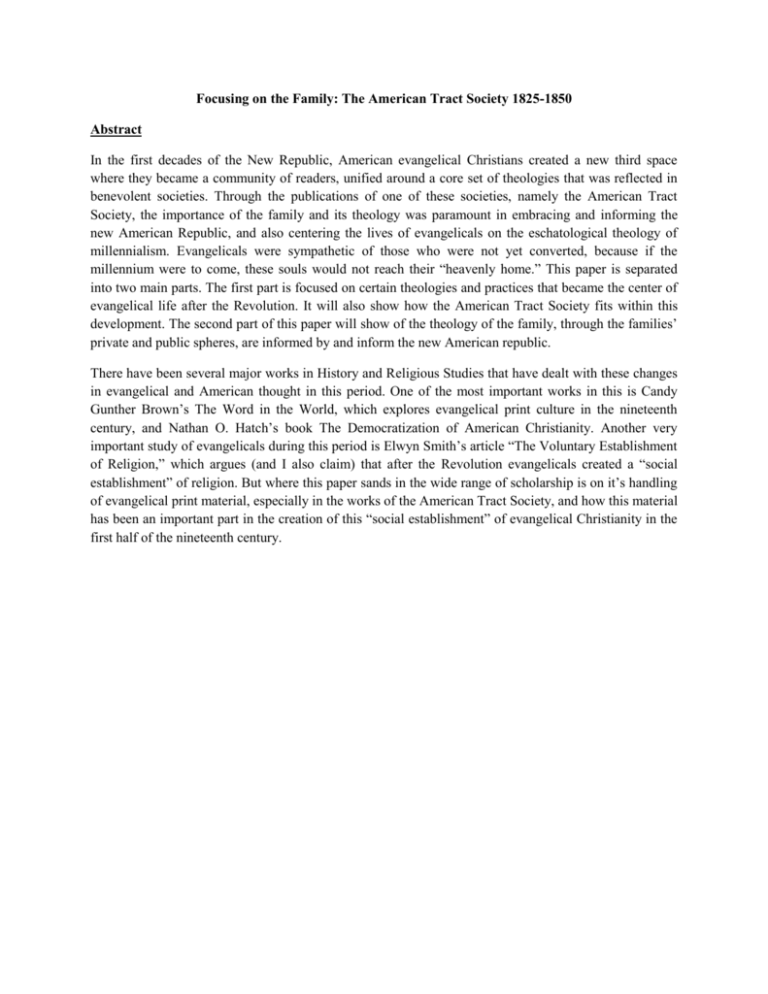
Focusing on the Family: The American Tract Society 1825-1850 Abstract In the first decades of the New Republic, American evangelical Christians created a new third space where they became a community of readers, unified around a core set of theologies that was reflected in benevolent societies. Through the publications of one of these societies, namely the American Tract Society, the importance of the family and its theology was paramount in embracing and informing the new American Republic, and also centering the lives of evangelicals on the eschatological theology of millennialism. Evangelicals were sympathetic of those who were not yet converted, because if the millennium were to come, these souls would not reach their “heavenly home.” This paper is separated into two main parts. The first part is focused on certain theologies and practices that became the center of evangelical life after the Revolution. It will also show how the American Tract Society fits within this development. The second part of this paper will show of the theology of the family, through the families’ private and public spheres, are informed by and inform the new American republic. There have been several major works in History and Religious Studies that have dealt with these changes in evangelical and American thought in this period. One of the most important works in this is Candy Gunther Brown’s The Word in the World, which explores evangelical print culture in the nineteenth century, and Nathan O. Hatch’s book The Democratization of American Christianity. Another very important study of evangelicals during this period is Elwyn Smith’s article “The Voluntary Establishment of Religion,” which argues (and I also claim) that after the Revolution evangelicals created a “social establishment” of religion. But where this paper sands in the wide range of scholarship is on it’s handling of evangelical print material, especially in the works of the American Tract Society, and how this material has been an important part in the creation of this “social establishment” of evangelical Christianity in the first half of the nineteenth century.
